Glacier National Park in Montana and adjacent Waterton Lakes
National Park in Alberta together constitute what is called an international
peace park straddling the border between the two countries. The ecosystem
continues into neighboring Akinena-Kishinena Provincial Park in British
Columbia. Together they protect around two million acres of some of the most
spectacular scenery in the Rocky Mountains, jagged peaks, valleys, and lakes
sculpted by glacier that are now melting into near non-existence. As some signs in Glacier still say, they are
forecast to be gone by 2020. Since that date has already passed, they seem to
be coy about making a new prediction for their final demise.
Although I make it to Glacier National Park almost every summer
since I’ve lived in Montana, I’ve only been to Waterton Lakes twice, and that
was many moons ago. I made a brief stop there with my mom on out 1988 trip to
the West and Alaska and then spent three days camping and hiking in the park in
August 2001. My interest in returning
was largely to do a very famous hike I missed back then, the hike to Crypt
Lake, which will be my next blog entry.
Waterton Lakes general lay of the land for the visitor is
not a very complex one. There’s one road
with several viewpoints from the border post to the main road into the park and
townsite. The town of Waterton is set on the west side of Upper Waterton Lake,
the southernmost of lower, middle, and upper lakes that extends into the
mountains and across the border.
From
the townsite area there are two other roads, the Red Rock Parkway and Akamina
Parkway that extend west up valleys into the Rocky Mountains toward the
Continental Divide.
Perhaps Waterton Lakes most famous site is the majestic
Prince of Wales Hotel, perched on a hill beside the lake but absolutely dwarfed
by the peaks that surround it. In some ways it resembles the grand national
park lodges in Glacier and other U.S. parks, but there’s a difference. At the Many Glacier Hotel in Glacier the male
staff where lederhosen; at Prince of Wales they wear kilts. Waterton’s townsite
is a true small town with numerous inns, hotels, campgrounds, restaurants, and
stores, a pleasant place to stay while visiting the park. I spent my evening at
the Thirsty Bear, a bar/restaurant whose name probably appealed to me more than
the menu.
I was not aware of it previously, but a large part of
Waterton Lakes National Park burned in a fire in 2017, something apparent from
the appearance of the mountains on the west side of the lake from the townsite.
The extent of the destruction became apparent
when I drove the Akamina Parkway to Cameron Lake. Where there were lush green forests extending
up the mountainsides from the valley back then, now there are only
fire-blackened trunks. New growth carpets the ground, though, seven years after
the fire. The long one-way hike I did
back then from Cameron Lake back to the Waterton townsite via Carthew Lakes and
Alderson Lake, considered one of the top three hikes in the park, is entirely
through the zone of fire devastation. I
am glad I got to experience the beauty back then, because I suspect it won’t be
fully recovered within my natural lifetime.
With so much of the park still recovering from the fire in
2017, visitation is apparently down at Waterton Lakes. I recall the town as having been a quite busy
place in 2001 and was quite surprised how it seemed rather quiet this year,
especially compared to the level of activity in Glacier National Park on the
U.S. side of the border.

 Waterton Lakes National Park of Canada, Alberta, Canada
Waterton Lakes National Park of Canada, Alberta, Canada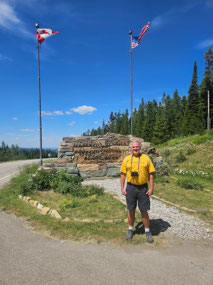
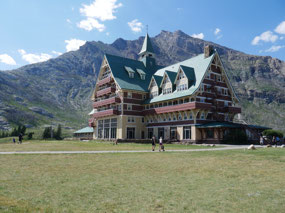
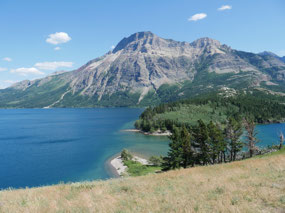


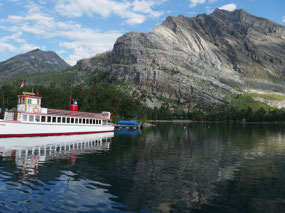
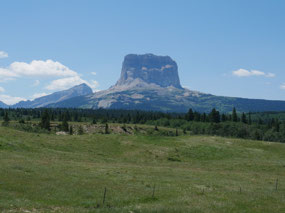
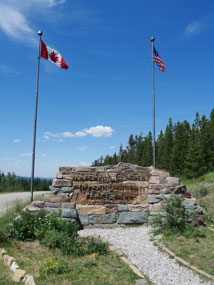
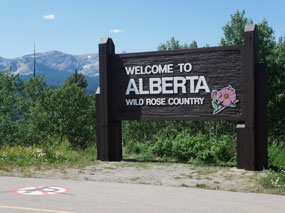
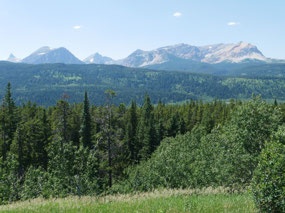
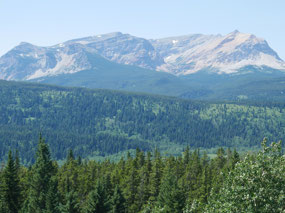
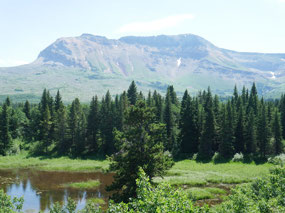
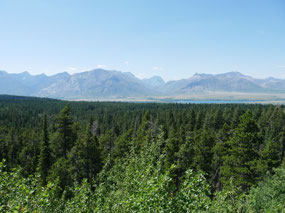
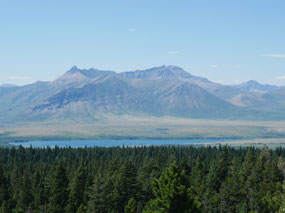
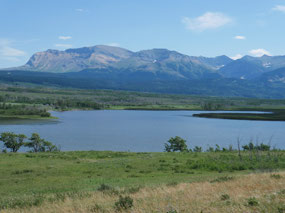
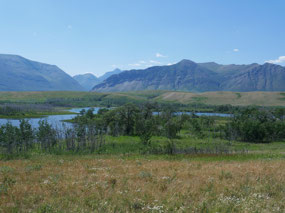
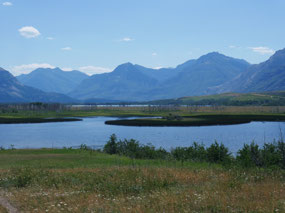
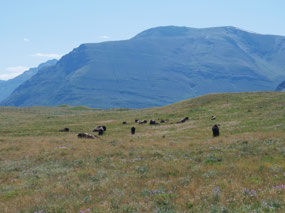
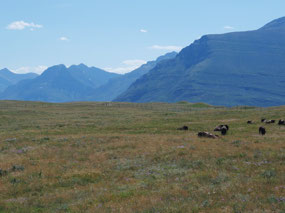
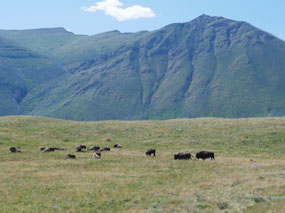
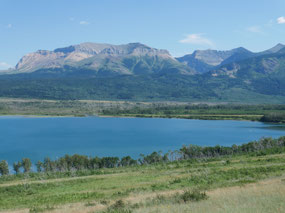
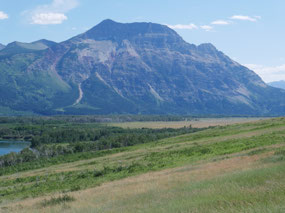
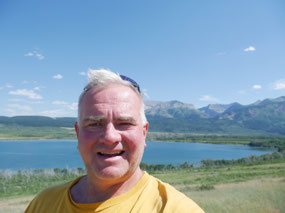
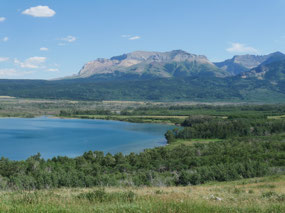
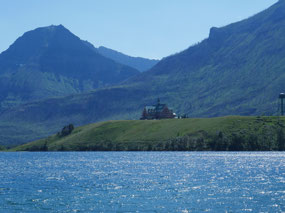
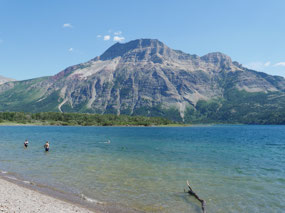
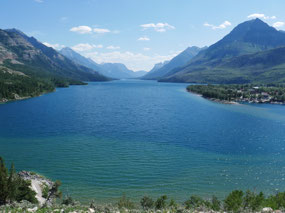

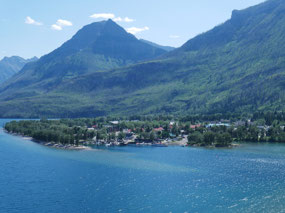
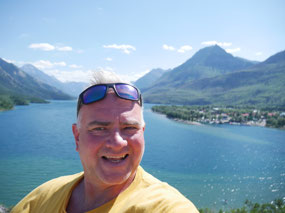
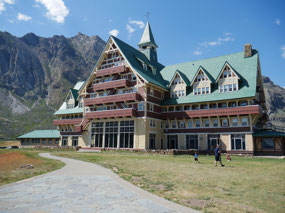
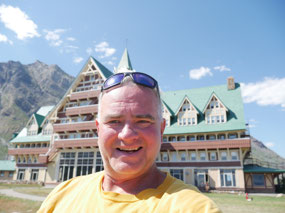
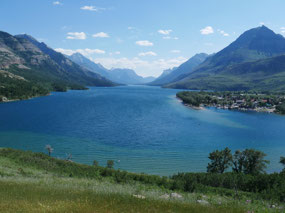
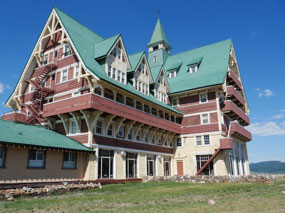
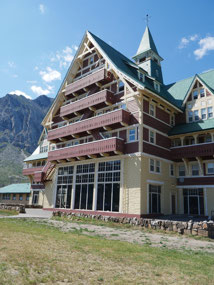
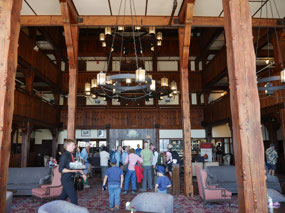
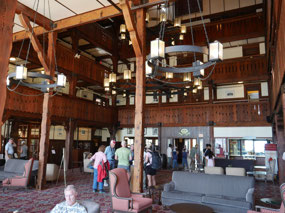
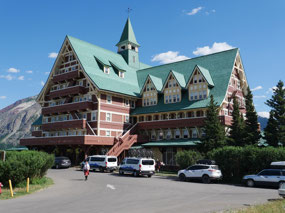
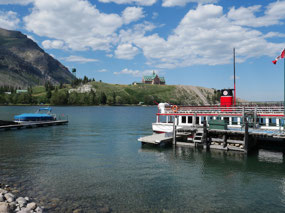
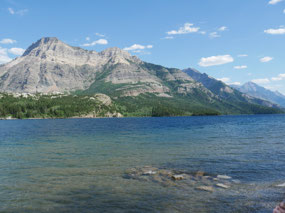
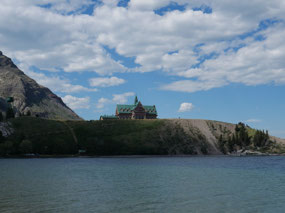
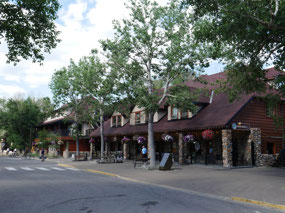
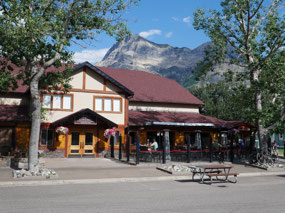
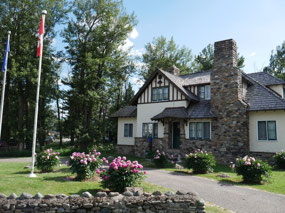
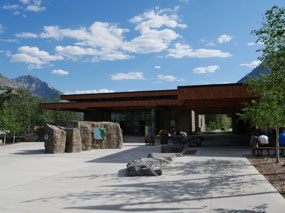
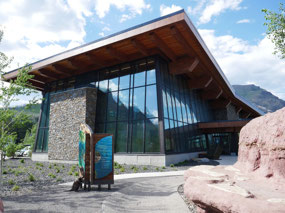
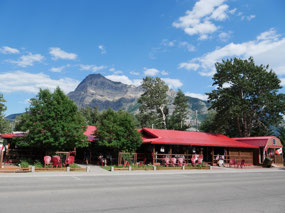
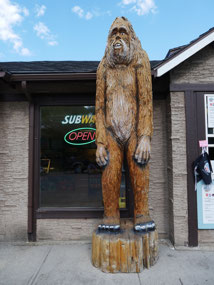
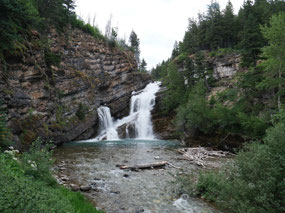
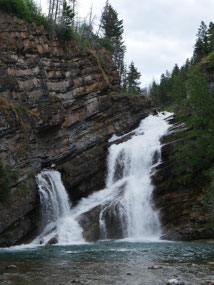
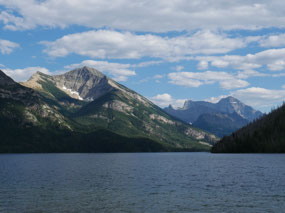
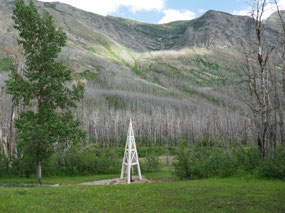
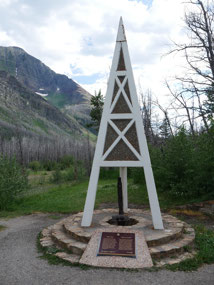
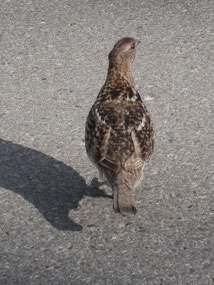
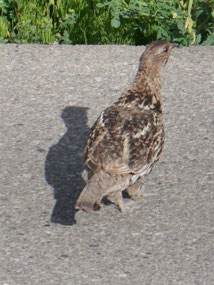
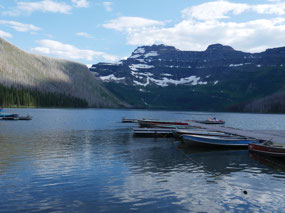
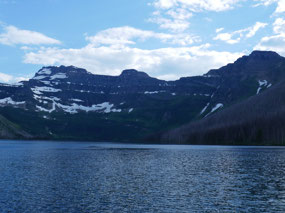
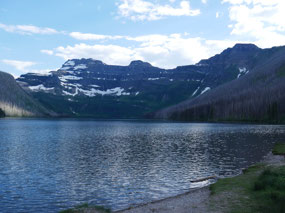
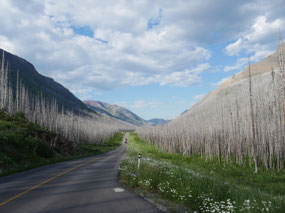
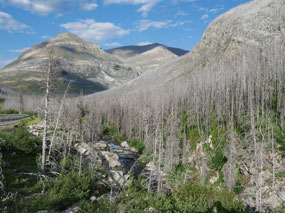
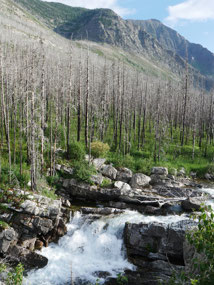
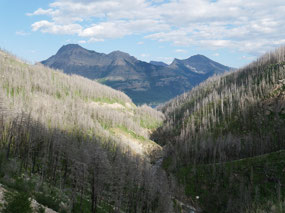
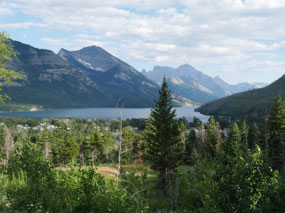
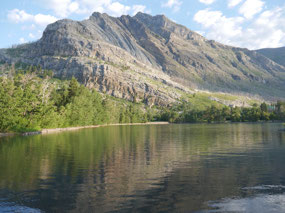
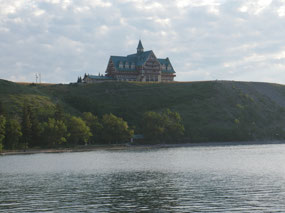
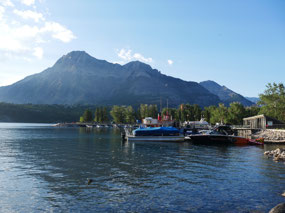
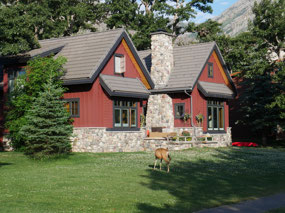
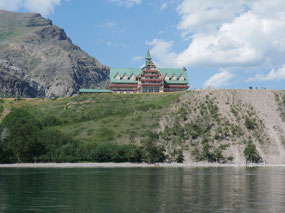
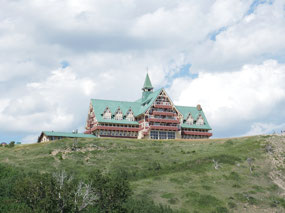
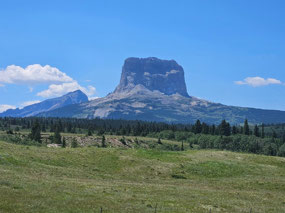
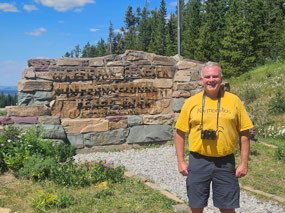
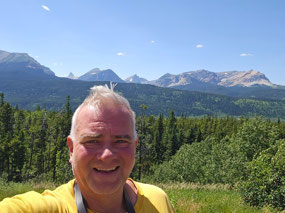
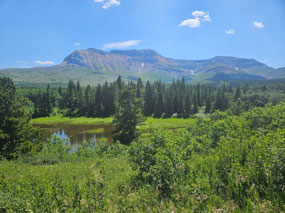
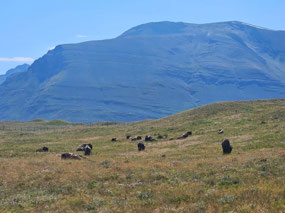
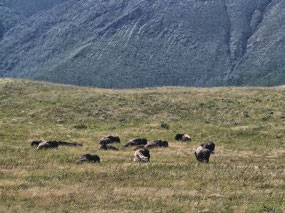
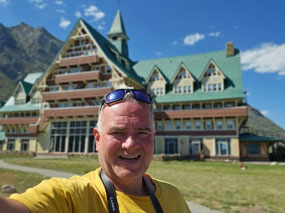
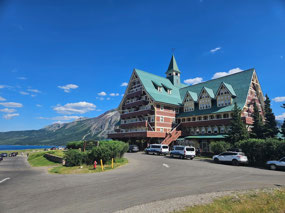
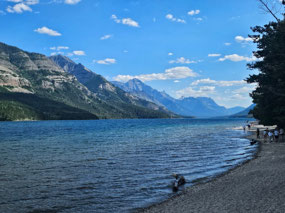
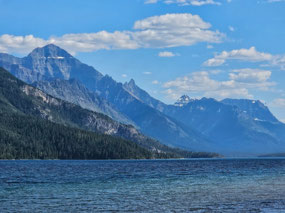

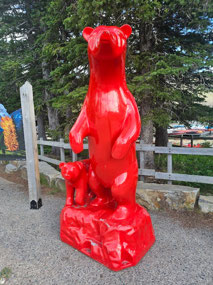
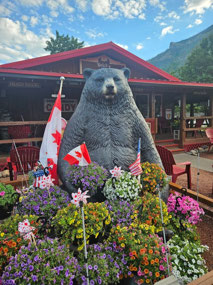
2025-05-22